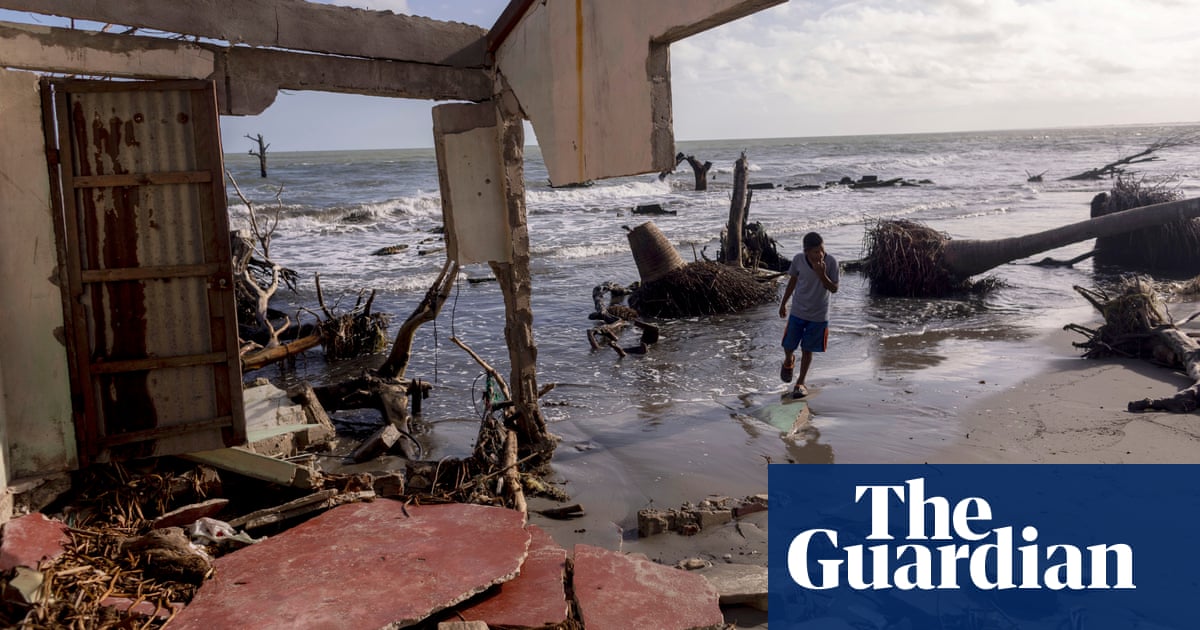
GENEVA (9 November 2020) - UN human rights experts* welcomed the impending entry into force of the first environmental human rights treaty in Latin America and the Caribbean, known as the Escazú Agreement, lauding it as a ground-breaking pact to fight pollution and secure a healthy environment.
"In the face of proliferating environmental conflicts and persistent intimidation, harassment and detention of environmental human rights defenders, the Escazú Agreement offers hope to the countless individuals and communities in the region that suffer from pollution and the negative impacts of extractive industries," said the UN Special Rapporteur on toxics and human rights, Marcos Orellana.
"The Escazú Agreement commits parties to guarantee the right to a healthy environment," added David Boyd, the UN Special Rapporteur on human rights and the environment. "It provides citizens and communities with the tools needed to hold States accountable for protecting and fulfilling this fundamental right."
The Escazú Agreement includes strong protections for indigenous peoples and environmental human rights defenders, at a time when they are subject to unprecedented levels of violence.
The experts expressed hope that the treaty could serve as a model for other regions to improve cooperation and mobilise efforts for better governance of natural resources and environmental protection through transparency, accountability and community engagement. By ensuring people"s rights to information, participation, and access to justice, the Agreement affirms a strong rights-based approach to environmental governance.
The experts also voiced concern over disinformation campaigns that have obfuscated public debate in certain countries of the region.
"We urge those countries who have yet to ratify or adhere, to join regional efforts and demonstrate best practice for a more just and sustainable region," the experts said.
The Escazú Agreement will enter into force 90 days following the 11th ratification. The experts commended the 11 countries that ratified the agreement: Antigua and Barbuda, Argentina, Bolivia, Ecuador, Guyana, Nicaragua, Mexico, Panama, Saint Vincent and the Grenadines, Saint Kitts & Nevis, and Uruguay.
"The remaining nations in the Latin America and Caribbean region should move quickly towards ratifying the Escazú Agreement in order to maximise the treaty"s effectiveness in protecting human rights in the face of today"s interconnected climate, biodiversity, and pollution crises," the experts said.
The Special Rapporteurs" recommendations were endorsed by: Saad Alfarargi, Special Rapporteur on the right to development; Pedro Arrojo-Agudo, Special Rapporteur on the human rights to safe drinking water and sanitation;Karima Bennoune, Special Rapporteur in the field of cultural rights; Elizabeth Broderick (Chair), Elena Dorothy Estrada Tanck, Meskerem Geset Techane, Ivana RadačIć, Melissa Upreti (Vice Chair), Working Group on discrimination against women and girls; Alice Cruz,Special Rapporteur on the elimination of discrimination against persons affected by leprosy and their family members, Olivier De Schutter, Special Rapporteur on extreme poverty and human rights; Michael Fakhri,Special Rapporteur on the right to food; Felipe González Morales,Special Rapporteur on the human rights of migrants; Cecilia Jimenez-Damary, Special Rapporteur on the Human Rights of Internally Displaced Persons; Irene Khan, Special Rapporteur on the promotion and protection of the right to freedom of expression; Chris Kwaja (Chair-Rapporteur), Jelena Aparac, Lilian Bobea, Ravindran Daniel, and Sorcha MacLeod,Working Group on the use of mercenaries;Mary Lawlor, Special Rapporteur on the situation of human rights defenders; Nils Melzer, Special Rapporteur on torture and other cruel, inhuman or degrading treatment or punishment; Tlaleng Mofokeng, Special Rapporteur on the right of everyone to the enjoyment of the highest attainable standard of physical and mental health; Siobhán Mullally, Special Rapporteur on trafficking in persons, especially women and children; Fionnuala D. Ní Aoláin, the Special Rapporteur on the promotion and protection of human rights and fundamental freedoms while countering terrorism; Clément Nyaletsossi Voule,Special Rapporteur on the rights to freedom of peaceful assembly and of association; Tomoya Obokata, Special Rapporteur on contemporary forms of slavery, including its causes and consequences; Obiora Okafor, Independent Expert on human rights and international solidarity; Gerard Quinn, Special Rapporteur on the rights of persons with disabilities; Anita Ramasastry (Chair), Dante Pesce (Vice-chair), Surya Deva, Elżbieta Karska, Githu Muigai, Working Group on the issue of human rights and transnational corporations and other business enterprises; Livingstone Sewanyana, Independent Expert on the promotion of a democratic and equitable international order; Leigh Toomey (Chair-Rapporteur), Elina Steinerte (Vice-Chair), Miriam Estrada-Castillo, Mumba Malila, Seong-Phil Hong, Working Group on Arbitrary Detention
ENDS







